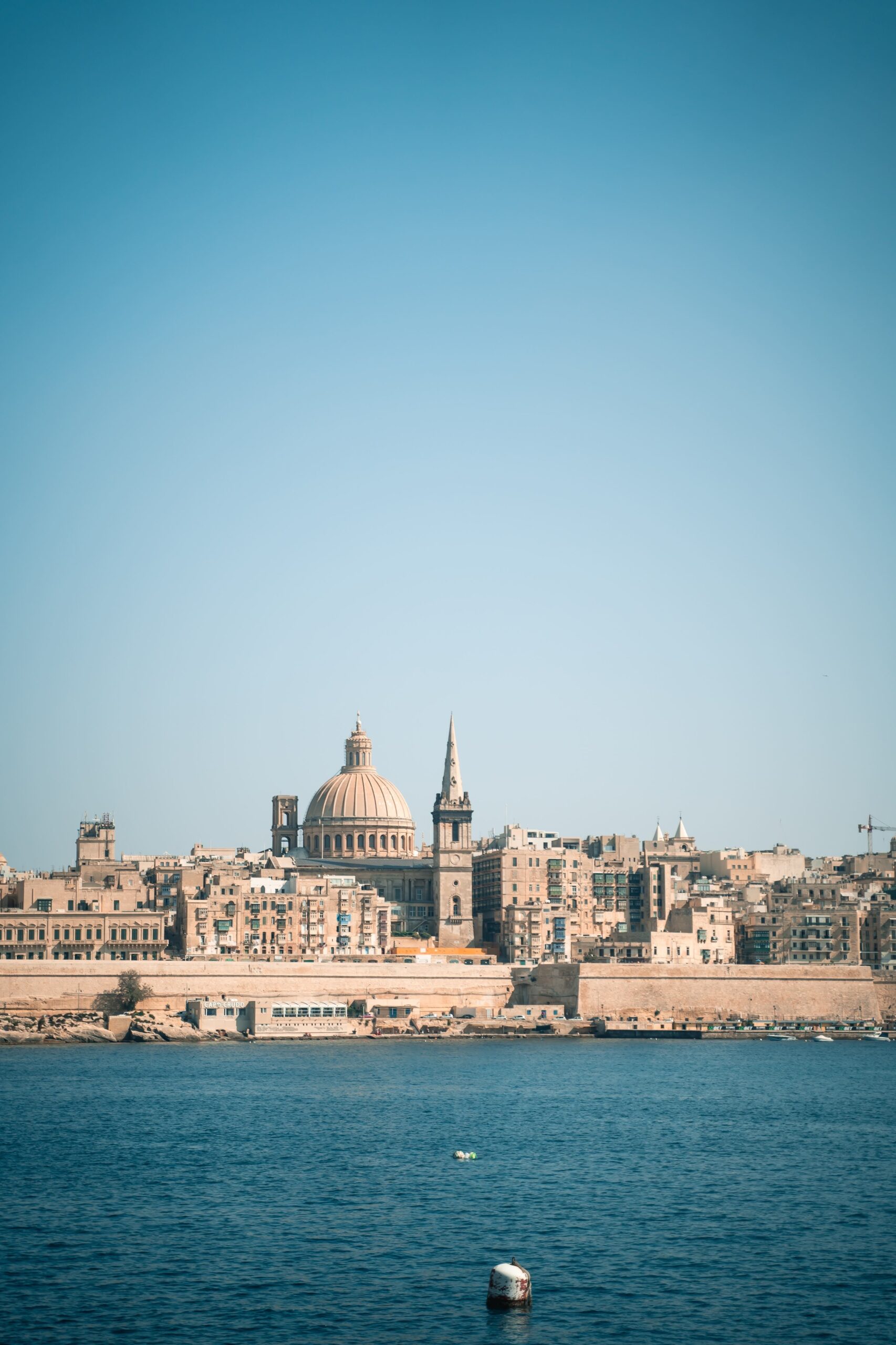Maltese Neutrality: A Live Debate
August 3, 2023 | Photo by Ludovica Dri on Unsplash
Active, Constitutional Neutrality
Prior to independence from Britain in 1964, Malta’s foreign and security policy was historically determined by the prevailing colonial power of the time. Since 1987, reflecting the insecurity generated by the Cold War superpower competition and growing militarisation of the Mediterranean, among other economic and socio-political drivers, Malta’s constitution has defined the country as a “neutral state actively pursuing peace, security and social progress among all nations by adhering to a policy of non-alignment and refusing to participate in any military alliance.” Amid current debates over the continuing applicability and relevance of neutrality for contemporary security, the words ‘actively pursuing’ are instrumental.
‘Actively pursuing’ is indicative that neutrality does not equate to indifference, nor does it mean that constitutional neutrality has rendered Malta ‘neutralised’ in its international engagement. The critical role played by the Mediterranean actor as the staging hub for humanitarian relief efforts during the 2011 Libya crisis stands testament to this. This crisis exemplified the utility of Malta for multilateral security cooperation: whilst other countries conducted military operations, neutral Malta could support with emergency landings, water, food, airspace and assistance to expatriates, refugees and other humanitarian efforts of crucial importance for international security – operations which were trusted and permissible precisely because they were conducted by a neutral state. Evidently, Malta’s ability to serve as an enabler of peace and security would be significantly curtailed by eschewing this neutrality.
It is therefore essential to recognise that ‘actively pursuing’ also means that, for the neutral state, aggression will be neither accepted nor tolerated, and Malta has long been vocal in condemning serious violations of international law and advocating for peaceful international relations and resolution of conflicts. This has been the case historically, including hosting the Bush-Gorbachev summit which symbolically ended the Cold War and pioneering the Common Heritage of Mankind principle that underpins modern Law of the Sea, as well as in its more recent diplomatic efforts, with Malta serving as Rapporteur at the Committee on the Exercise of the Inalienable Rights of the Palestinian People at the United Nations, hosting Libyan peace talks, advancing the Barcelona Process to strengthen relations between Europe and the Southern Mediterranean countries, and being one of the first countries to endorse the Treaty on the Prohibition of Nuclear Weapons.
The Impact of the Ukraine Crisis
In relation to the Ukraine crisis, which has brought debates about neutrality into the spotlight, Malta has been abstaining on lethal assistance measures, but, like Austria, has still provided a significant amount of non-lethal military assistance through its contributions to the European Union’s European Peace Facility (a financial instrument funding equipment and training for partner countries). Malta remains an active participant in the EU Common Security and Defence Policy, whilst exercising its sovereign right not to participate in military missions or operations.
Furthermore, in January 2023, Malta, together with Switzerland, acceded for its second tenure as an elected member of the United Nations Security Council for two years – a role that does not engender additional legal or political obligations, but which aligns with the dialogue and multilateralism-centred approach advocated by the neutral state. In this role, Malta has taken a clear stance, whilst following UN procedures. For instance, in keeping with the procedure which permits non-members of the Security Council to address members prior to a debate they hold a direct stake in, Malta allowed Ukraine to address the UN Security Council during the debate that Malta chaired on the anniversary of Russia’s invasion, despite strong Russian opposition.
This is not to say that there is no debate about Malta’s neutral posture, and every few years, the discussion resurfaces. This was most vivid during the debate over accession to the European Union in the late 90s and early 2000s, when concerns were raised that joining the supranational organisation could compromise Malta’s neutrality. However, since acceding to the Union, both the major political parties have come to consensus that membership can be compatible with the Maltese brand of neutrality, and today there is cross-party approval for maintaining this strategic posture. Still, questions about its viability in contemporary foreign and security policy regularly recur owing to external pressures. In seeking support for American President Obama’s Afghanistan policy in 2010, American Ambassador to Malta Douglas Kmiec questioned the ‘the uncertainty of the current meaning of neutrality.’ When the French sought to activate the mutual defence clause of the EU’s Common Security and Defence Policy in response to the acts of terror in Paris, the Maltese government made it clear that they would only provide assistance in line with the constitution. Shortly afterwards, in 2016, Malta refused to refuel Russian warships bound for Syria.
The Neutrality Debate
The debate was particularly vocal in 2020, during discussions concerning the signing of a Status of Forces Agreement (SOFA) with the United States. This would facilitate the activity of American military personnel in Malta and would ensure that any military personnel who commit a crime on Maltese territory would be tried in their country of origin. The agreement was ultimately shelved as the terms were deemed unfavourable to the Maltese, the Americans refused to sign a watered-down version, and even the former President of Malta was actively appealing in the national media that the SOFA would open the door to additional military agreements and should not be signed. In each case, the cross-party consensus and the majority of the population (with only 6% voting against preserving neutrality in a 2022 survey commissioned by the Maltese Foreign Affairs Ministry) has been that neutrality was hard-fought and worth conserving. Political commentators generally agree that a discussion should be had about how this should be modernised from the Cold War context in the constitution to better reflect contemporary security threats, ranging from ecological to economic security, but certainly not by abjuring the strategic posture entirely and joining any military alliances.
Of course, the debate over the continuing relevance of neutrality remains a live one, particularly with the Finnish and Swedish abandonment of this long-standing principle, and their applications to NATO. Whilst Malta is not facing the same security dilemma as Baltic and Eastern European partners, its geographical location has resulted in exposure to security risks in recent years, ranging from the threat posed by ISIS (e.g. being within range of a ballistic missile) or spill-over effects from the Libya crisis. Whilst it has navigated these risks to date, Malta lacks military facilities and its armed forces are constrained by limitations typical of small states, including budget, manpower, hardware, and know-how. Notably, Malta does not possess any operational air defence ordnance, and has not invested in modern ordnance or expertise as such an investment has previously been deemed too expensive. With no truly effective ordnance (guns or missiles) or early warning military radar that can counter electronic jamming, Malta remains largely defenceless, as was proven with the unexpected landing of two defecting Libyan Air Force Mirage jet-pilots seeking political asylum at the outset of the Libyan revolution in 2011.
The Safeguards
Still, if threatened, Malta has several safeguards in place. First, it would not be abandoned to face threats alone. Prior to acceding to the EU, Malta’s security was historically underwritten by bilateral security guarantees with Italy and Libya. Today, it is legally entitled to mutual defence under clause 42.7 of the Treaty of the European Union, which states that “if a Member State is the victim of armed aggression on its territory, the other Member States shall have towards it an obligation of aid and assistance by all the means in their power.” It is therefore already entitled to assistance within the relative constraints of European collective security arrangements.
Secondly, whilst the constitution does not permit the country to engage in attacks upon another state, it clearly stipulates that it is fully entitled to defend itself and seek assistance “in the exercise of the inherent right of self-defence in the event of any armed violation of the area over which the Republic of Malta has sovereignty, or in pursuance of measures or actions decided by the Security Council of the United Nations; or whenever there exists a threat to the sovereignty, independence, neutrality, unity or territorial integrity of the Republic of Malta.” It will not attack other countries, but it will certainly defend itself and accept assistance to do so.
Third, there are means of shoring up security that do not need to be military in character, as the preceding discussion of Malta’s peacebuilding efforts have indicated, and Malta will continue to be an active and vocal participant in multilateral fora, including the Union of the Mediterranean, the EU, the OSCE, the UN, and other regional and international organisations that contribute to inclusive and multi-faceted security architecture.
Conclusion
Fundamentally, any attempt to alter the constitutional provision enshrining neutrality into the Maltese constitution will be subject to a two-thirds parliamentary majority and is presently unlikely to pass. To date, the risk calculus in relation to Malta’s security prospects continues to indicate that the departure from such a stance would only exacerbate Malta’s vulnerability and insecurity, whilst forcing it to surrender its moral authority and reducing its diplomatic clout, particularly within the volatile Mediterranean region. The key question for policymakers should not be whether to abandon this orienting principle, but how to continue actively promoting dialogue and building peace through international engagements, whilst shoring up domestic defence and resilience in case any required assistance should ever be subjected to delays. Evidently, such an endeavour does not necessitate a departure from Malta’s brand of neutrality that precludes participation in military activities overseas, and the small island nation is therefore likely to continue adhering to such a constitutional principle for a long time to come.


